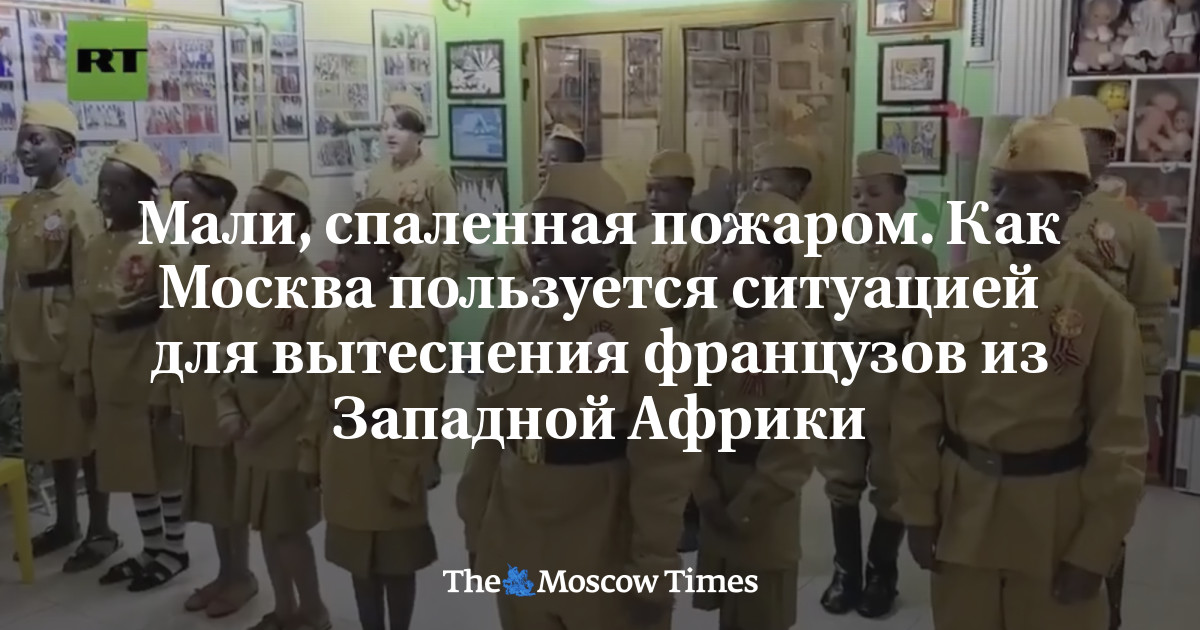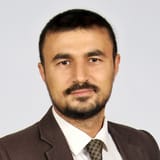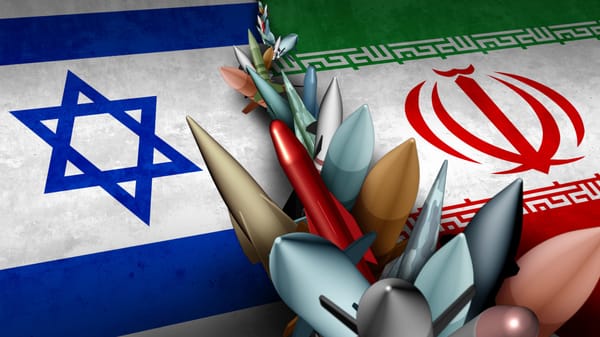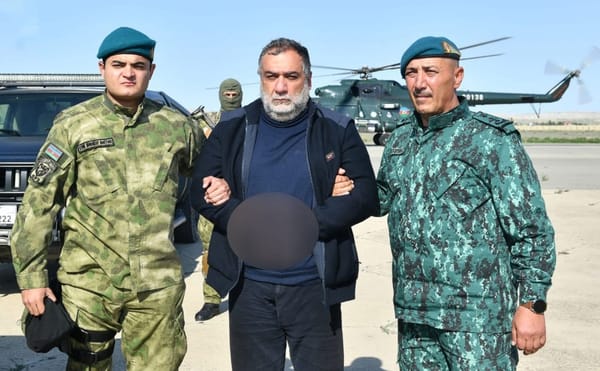Mali’s Pivot to Russia Reshapes West African Geopolitics

Mali’s sharp turn away from its former European patrons and toward a strategic alliance with Russia appears to be fundamentally reshaping the balance of power in West Africa. This former French colony is drifting ever more demonstratively toward Moscow—signaling the emergence of an entirely new geopolitical configuration on the African continent.
The soft morning light gliding across the ancient adobe walls of Bamako, Mali’s capital, now illuminates a new political reality. In the heart of the Sahel—a vast region stretching from Sudan to the Atlantic Ocean, bridging North and Tropical Africa—the presence of distant Moscow is becoming increasingly tangible. Where France was once seen as the undisputed key partner, Russia is now rapidly and confidently gaining ground. And this shift is triggering growing unease across Europe.
Recently, Mali—a country rich in natural resources, marked by a complex history of insurgent movements, and boasting enormous potential for economic growth—has been appearing more frequently in international headlines. Among the developments attracting global attention are the withdrawal of MINUSMA (a major UN peacekeeping mission), open conflict with the leadership of ECOWAS (of which Mali is a member), and accusations against Ukraine of supporting terrorism and rebel groups within Malian territory.
In this context, dissatisfaction with the “West”—and with France in particular, Mali’s former colonizer—is becoming closely intertwined with the wider standoff between Moscow and Kyiv. As a result, the distant African Sahel is increasingly resembling yet another front in the Russia–Ukraine war. If current trends continue, this front could evolve into a valuable geostrategic platform for Russia, which finds itself isolated and under heavy sanctions. The presence of Russian military instructors and contractors in Mali, along with generous investments in resource extraction, energy, and even education, serves not only as a practical workaround to many of the restrictions imposed on Russia, but also as a direct pathway to securing the support of African partners on the international stage.
From Post-Colonial Friction to Strategic Realignment: France Out, Russia In
Mali is, without exaggeration, a key country in the Sahel region. Historically—being a former colony—it was closely integrated into France’s political, economic, and even military systems. For this reason, Paris traditionally maintained especially close ties with Mali, not unlike those that Russia has attempted to forge with the former Soviet republics after the collapse of the USSR.
Today, however, the political landscape of West Africa is shifting rapidly. France increasingly finds itself accused of neo-colonialism and faces mounting criticism for its security efforts in the region. Major French military operations aimed at combating jihadist groups across the Sahel—such as “Serval” (2013–2014), “Barkhane” (2014–2022), and others—are now regarded by Bamako as failures, or at the very least are openly labeled as such, fueling growing disillusionment.
As a result, France’s military presence in the Sahel overall—and in Mali in particular—has been steadily declining over the past several years. And in such an environment, how could new “partners” fail to emerge? Indeed, they have. Amid deteriorating relations between Paris and Bamako, Russian “security experts” have begun appearing in Mali with increasing frequency. Many of them have been identified by international OSINT analysts as former members of the Wagner Group who fought in Ukraine.
Officially, Moscow sends these specialists to support the Malian army in preparing to counter terrorist threats. However, given the notorious track record of this private military company in other countries, it is not difficult to see that far broader interests are at play—ranging from securing the political loyalty of Mali’s leadership to gaining access to the country’s natural resources.
The Sahel as a Geopolitical Chessboard: Ukraine Enters the Fray
Since Russia’s invasion of Ukraine in February 2022, the global geopolitical landscape has become noticeably more polarized. Against the backdrop of Western sanctions and the collapse of Russia’s previous international relationships, many poor and undemocratic African states—countries that have never had reason to expect meaningful military or economic cooperation with the developed world—have emerged as convenient partners for Moscow. Mali, of course, is among these "backup airfields"—a country with a consistent interest in foreign engagement and significant reserves of gold and other valuable minerals.
It is therefore hardly surprising that Kyiv, seeking to curb Moscow’s growing influence in Africa, has opened a “second front” against Russia specifically in Mali, allegedly supporting various rebel groups opposed to the Malian government. Officially, Ukraine denies any involvement in backing Malian insurgents. Nonetheless, the mere appearance of such narratives in global media discourse—regardless of their factual accuracy—is in itself a clear sign that the Sahel, and Mali in particular, is becoming more than just a local arena for the Moscow–Paris rivalry. It is increasingly a kind of global chessboard.
And on this chessboard, a collectively understood "West" now confronts Russia—seen as representing a civilizational “East”—in a complex geopolitical game. This Western bloc includes not only France, traditionally seen as the dominant external actor in the region, but also, at a minimum, the broader coalition of democratic, developed nations that support Ukraine in its defense against Russian aggression.
Combat Expertise over Reputation: Why Bamako Bets on Moscow
The most visible vector of Russia’s expansion in Mali is military cooperation. This involves not only arms deliveries and the training of local forces, but also direct operational support in several campaigns against insurgent groups. According to official statements from Moscow and Bamako, the arrival of Russian "military specialists" is framed as a response to the failures of France’s long-standing presence and of UN peacekeeping missions.
In practice, however, many of these Russian specialists are veterans of the ongoing war in Ukraine. With extensive battlefield experience, they provide the Malian government not only with training methods and tactical strategies honed in contemporary warfare, but also with hands-on support that Malian forces value first and foremost for its proven effectiveness in real combat.
Undoubtedly, cooperation with Russia comes with serious reputational risks for Mali. Yet for Malians—as for many in Africa, where long-term geopolitical calculus is often less prioritized—concepts like international reputation and strategic foresight are far less tangible than the immediate utility of effective counterinsurgency. Thus, in areas where Russian expertise is truly established—especially in applied military tactics and hard-tested combat coordination—Bamako logically prefers cooperation with Moscow over any alternative.
Minerals and Influence: Russia’s Economic Stakes in Mali
Beyond its military and political influence, Russia has clear material motivations for maintaining a presence in Mali. The country is home to some of the largest gold mines in the region and ranks among the top three gold-producing nations in Africa. Geological surveys have also identified promising deposits of lithium and other rare earth elements. Global mining giants such as Barrick and B2Gold, which have operated in Mali for years, are now facing mounting competition from Russian companies—for instance, Yadran Group.
A separate area of strategic intrigue involves Mali’s uranium reserves. Given the growing importance of uranium in nuclear energy, control over such resources represents not only a path toward long-term strategic projects for Russia itself, but also a potential lure to deepen anti-Western cooperation with “nuclear outliers” like Iran and North Korea. Accordingly, Russia is actively promoting joint ventures with Malian partners in this sector.
Taken together, Russia’s interest in Mali’s deposits of gold, uranium, lithium, and other minerals reveals a clear ambition to integrate Bamako into a new global economic network centered on Moscow and its allied stakeholders. In the long term, this means not only financial inflows for Mali, but also growing dependence on Russia. In regions as complex as the Sahel, large-scale investments of this kind typically come as part of broader "package" deals—binding the recipient country’s military and political spheres to the interests of the external power behind the funding.
Power as Leverage: Russia’s Energy Ambitions in the Sahel
Another vector of Russian expansion lies in the creation of energy infrastructure. The state corporation Rosatom and its subsidiaries have already accumulated substantial experience working with developing countries—ranging from uranium enrichment projects (Namibia) and nuclear power development (Turkey, Bangladesh, and others) to renewable energy initiatives in Central Asia.
In Mali, this activity may include the construction of power units, modernization of transmission networks, and the development of renewable energy sources such as wind and solar farms. However, in a fragile socio-political environment, implementing such projects is no easy task. Ensuring the safety of personnel and the protection of infrastructure requires additional agreements—thus enabling Moscow to further expand its military presence under the guise of safeguarding critical assets.
In this way, energy projects become yet another instrument of Russian influence in the Sahel, positioning Moscow as a truly multi-dimensional and comprehensive partner for countries across the region.
Soft Power, Hard Agenda: Russia’s Cultural and Media Footprint in Mali
Moscow’s expansion in Mali is not limited to investments and military instructors—it also includes elements of soft power, paradoxical as that may sound for a country that has long ceased to project any globally competitive cultural narratives. Nevertheless, in a context of constrained alternatives, interest in Russian education and Kremlin-driven media narratives is beginning to grow in Mali.
The Peoples' Friendship University of Russia (RUDN), known for its large-scale international programs, is now expanding its recruitment of students from African countries, including Mali. Academic scholarships, joint research initiatives, and student exchange programs all contribute to a favorable environment for strengthening humanitarian ties.
In Mali’s media landscape, the influence of Russian information outlets—particularly the Sputnik media group—is becoming increasingly noticeable. In a setting where most Malians are now expected to express dissatisfaction with the so-called “Western information dictatorship” and avoid Western content altogether, Russian channels are free to operate in an unchallenged information space. There, they can openly promote Kremlin talking points and cultivate a favorable image of Moscow as a supposedly “strong and just partner.”
As for Mali’s authorities—generally inexperienced in the subtleties of information and propaganda warfare—they appear to view Russian informational dominance not as a threat, but as a convenient, cost-free counterweight to the cultural influence of their former colonial power.
A New Bloc Rises: Russia Backs Regional Realignment in the Sahel
It is already clear that, amid rising anti-colonial sentiment and nationalist rhetoric—both actively encouraged by Russia—a fundamentally new type of supranational structure is taking shape in the Sahel. One such entity is the Alliance of Sahel States (AES), created just a year and a half ago, which has already emerged as a powerful alternative to the region’s traditional organizations, such as ECOWAS or the African Union, where “Western” influence—particularly that of the Francophone bloc—has long been dominant.
Russia is actively supporting this process. The consolidation of AES allows Bamako and its allies to pursue an “independent” (read: pro-Russian) foreign policy centered on rejecting cooperation with their former colonial powers. It is increasingly evident that Moscow’s influence over AES will be significant—at a minimum, through military cooperation and political backing.
This development is far more than a symbolic challenge to former centers of power like Paris, Brussels, or Washington. It represents a functional geopolitical project by Moscow, aimed at fundamentally reshaping long-established political, trade, military, and cultural relationships in the region. And if Mali and other Sahelian states, with Russia’s help, succeed in consolidating around a new set of geopolitical principles—building a shared security infrastructure, energy market, and financial-economic platform—then Moscow stands a real chance of securing a long-term foothold in this critical geostrategic region for decades to come.
New Dependencies in the Making: Russia, the Sahel, and the Illusion of Sovereignty
When viewed from an even broader perspective—not just regional, but global—it becomes clear that the relationship between Moscow and Bamako is merely the visible tip of a much larger reconfiguration of regional blocs. The overall trend is unmistakable: rhetoric centered on sovereign policy, independence, and the fight against colonial legacies creates a favorable environment for new global players to enter the former European colonies.
Yet many of these countries either fail to recognize—or deliberately ignore—the fact that “breaking free” from former colonial powers is often accompanied by a shift into a new, and perhaps even more unequal, form of dependency. The retreat of Western-style liberal democracies is frequently followed by the advance of aggressively authoritarian regimes. And so, before Russia fully entrenches itself as the “new metropole” for Africa’s resource-rich states, Western partners might consider going beyond mere expressions of concern. They may need to actively counter the Kremlin’s efforts on the “Sahel front”—just as Ukraine is doing on its eastern borders, with firsthand knowledge of what Moscow’s occupation truly entails.
This article is also published in other media.







